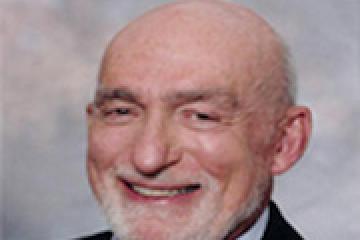
An insatiable curiosity about all things human and cosmic drove Thomas D. Worthen’s life. In the 1950s he entered the academy at Cal Tech as an avid student of astronomy and physics (he also played on the football team there), and following a circuitous path that included a stint in the US Army he earned his Ph.D. in Classics at the University of Washington. Professor Worthen began teaching in the Department of Classics at the UA in 1965, where his colleagues were Garnet Percy, Donald Ayers, and Richard Jensen. For twenty years he taught extensively in the university’s Humanities Program and masterfully handled Greek instruction in the department. When Professor Ayers died in 1969, Thom inherited his course in English words derived from Latin and Greek elements, for which Ayers had published a textbook. Thom taught this course happily for years as the departmental words-maven, and revised the widely used Ayers book for the UA Press in 1989. Thom also cultivated a specialty in myth and in 1991 published The Myth of Replacement: Stars, God, and Order in the Universe, a complex and richly imaginative interpretation of select world myths (and their associated cycles of time) as a response to astronomical precession. By then, in no small part owed to Thom’s dedication, the department had grown exponentially and Thom devoted most of his teaching duties—now reduced from five to six courses per semester at the beginning of his career (i.e., before the UA became a Research I institution)—to teaching Greek language and literature.
Over the course of his career Thom translated and discussed virtually all of Plato’s works with Classics and Philosophy students at local coffee shops. As higher education in the US was drastically transformed during his career, Thom held to his conviction that students learn best when treated as the individuals they are. He retired from the UA after a distinguished career of thirty-four years in May 1999. Immediately after retirement, generous donations from former students, colleagues and friends led to the establishment of the Thomas D. Worthen Prize, which is awarded annually to an undergraduate Classics major for excellence in Greek.
Thom remained deeply engaged with scholarship. His various publications after retiring include a translation of Aeschylus’ Oresteia and a lengthy appendix on the dating of Greek tragedies based on celestial phenomena referred to in the plays. In 2001, regret over not having adequately prepared the second half of Vergil’s Aeneid for his Ph.D. oral exams decades before led Thom to ask a colleague to meticulously read and study these books with him each Friday at Gentle Ben’s, a project that welcomed several graduate students during the three years it took to complete. Retirement also allowed Thom to further cultivate his longstanding interests in music, painting and singing, where his powerful baritone was welcomed by a number of community choirs. He pursued his intellectual passions to the end of his life, e.g., taking several chemistry classes at the university and even working as a research assistant in that field.
Professor Thomas Worthen died on September 20, 2016. He inspired students, many of whom stayed in touch with him long after they left the university. Those who knew him cherish his genial disposition, genuine and booming laughter, and sharp wit; some warmly remember him as “The Laughing Philosopher”, as one of his heroes, the atomic thinker Democritus, was known in antiquity. Dis Manibus. κούφα σοι χθὼν ἐπάνωθε πέσοι (“May the earth fall lightly on you”, unless you’re enjoying a catasterism!).
